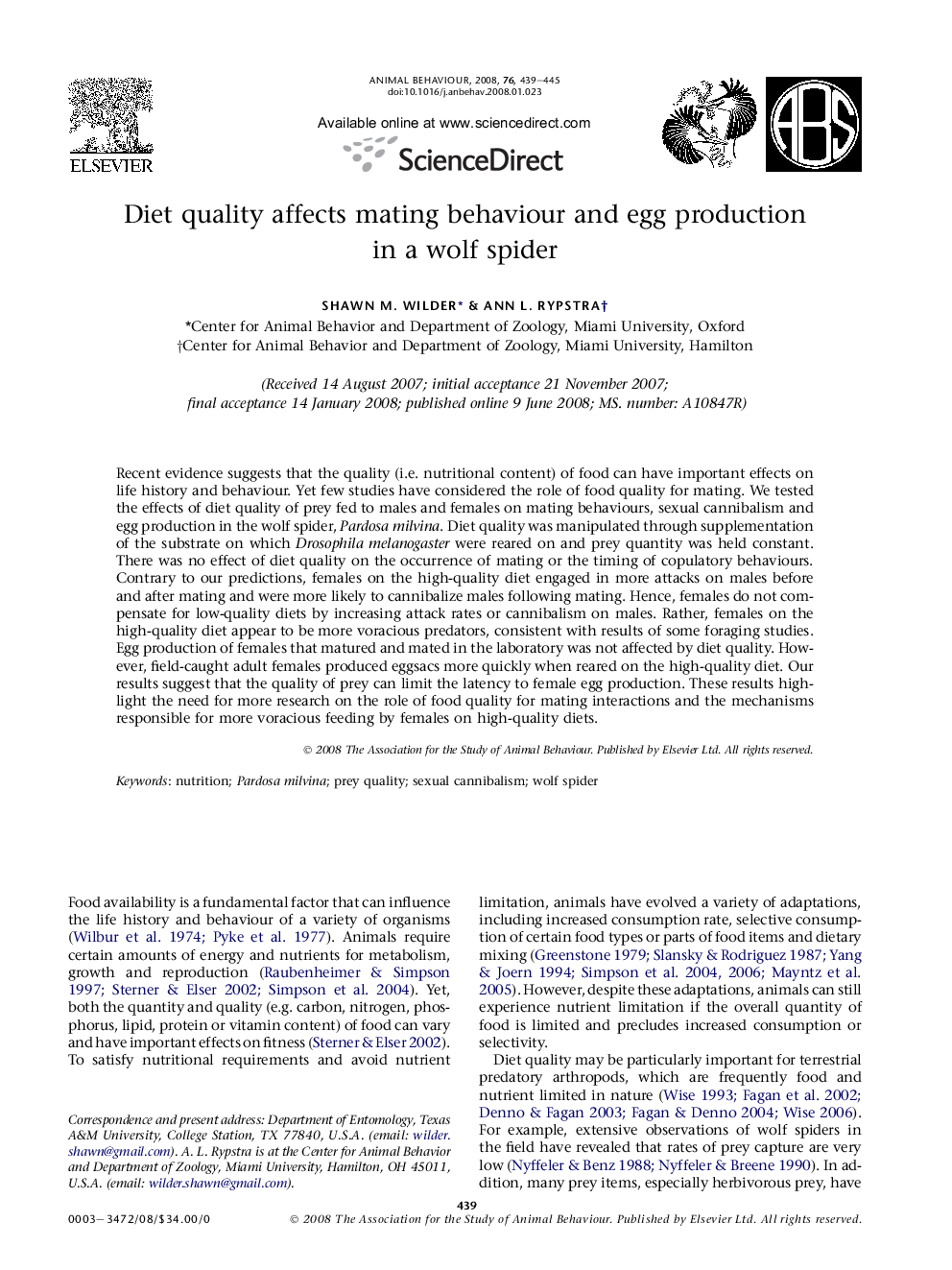| Article ID | Journal | Published Year | Pages | File Type |
|---|---|---|---|---|
| 2418878 | Animal Behaviour | 2008 | 7 Pages |
Recent evidence suggests that the quality (i.e. nutritional content) of food can have important effects on life history and behaviour. Yet few studies have considered the role of food quality for mating. We tested the effects of diet quality of prey fed to males and females on mating behaviours, sexual cannibalism and egg production in the wolf spider, Pardosa milvina. Diet quality was manipulated through supplementation of the substrate on which Drosophila melanogaster were reared on and prey quantity was held constant. There was no effect of diet quality on the occurrence of mating or the timing of copulatory behaviours. Contrary to our predictions, females on the high-quality diet engaged in more attacks on males before and after mating and were more likely to cannibalize males following mating. Hence, females do not compensate for low-quality diets by increasing attack rates or cannibalism on males. Rather, females on the high-quality diet appear to be more voracious predators, consistent with results of some foraging studies. Egg production of females that matured and mated in the laboratory was not affected by diet quality. However, field-caught adult females produced eggsacs more quickly when reared on the high-quality diet. Our results suggest that the quality of prey can limit the latency to female egg production. These results highlight the need for more research on the role of food quality for mating interactions and the mechanisms responsible for more voracious feeding by females on high-quality diets.
